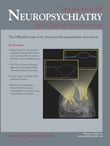Depression and Fruit Treatment
To the Editor: Depression is a common mood disorder affecting sleep, appetite, and libido, and is also one of the manifestations of dementia and may lead to suicide attempts, particularly with violent methods. 1
Research has shown the involvement of serotonin, melatonin, and tryptophan in depression 2 ; the association of serotonergic system with Alzheimer’s disease and related dementia 3 ; and the decrease of CSF 5-hydroxyindoleacetic acid (5HIAA), which is a metabolite of serotonin, in suicide attempters, 1 particularly ones who use violent methods.
Based on these pathophysiological mechanisms, some groups of drugs (like tricyclic antidepressants, monoamine oxidase inhibitors, and selective serotonin reuptake inhibitors) have been developed, but these medications bring some serious problems, such as (a) being considered as stigma in some cultures, (b) adverse effects, and (c) potential abuse for the purpose of suicide attempts. A new therapeutic approach is needed to address these concerns.
There are some high-content sources of serotonin, melatonin, and tryptophan which can provide the body with these substances. These include plantains, pineapples, bananas, kiwis, plums, and tomatoes for serotonin; white and black mustard, wolfberry seeds, and fenugreek seeds for melatonin; and cottage cheese, soy protein, peanuts, beans, wheat flour, and potatoes for tryptophan. 4 – 7
It seems that using such foods in the daily diet of depressed patients not only could treat the disease but may improve the prognosis of dementia and decrease violent suicide attempts.
1. Krakowski M: Violence and serotonin: influence of impulse control, affect regulation, and social functioning. J Neuropsychiatry Clin Neurosci 2003; 15:294–305Google Scholar
2. Baldwin D, Rudge S: The role of serotonin in depression and anxiety. Int Clin Psychopharmacol 1995; 9(suppl 4):41–45Google Scholar
3. Lanctôt KL, Herrmann N, Mazzotta P: Role of serotonin in the behavioral and psychological symptoms of dementia. J Neuropsychiatry Clin Neurosci 2001; 13:5–21Google Scholar
4. Feldman JM, Lee EM: Serotonin content of foods: effect on urinary excretion of 5-hydroxyindoleacetic acid. Am J Clin Nutr 1985; 42:639–643Google Scholar
5. Manchester LC, Tan DX, Reiter RJ, et al: High levels of melatonin in the seeds of edible plants: possible function in germ tissue protection. Life Sci 2000; 67:3023–3029Google Scholar
6. Udenfriend S, Lovenberg W, Sjoerdsma A: Physiologically active amines in common fruits and vegetables. Arch Biochem Biophys 1959; 85:487–490Google Scholar
7. Ly D, Kang K, Choi JY, et al: HPLC analysis of serotonin, tryptamine, tyramine, and the hydroxycinnamic acid amides of serotonin and tyramine in food vegetables. J Med Food 2008; 11:385–389Google Scholar



